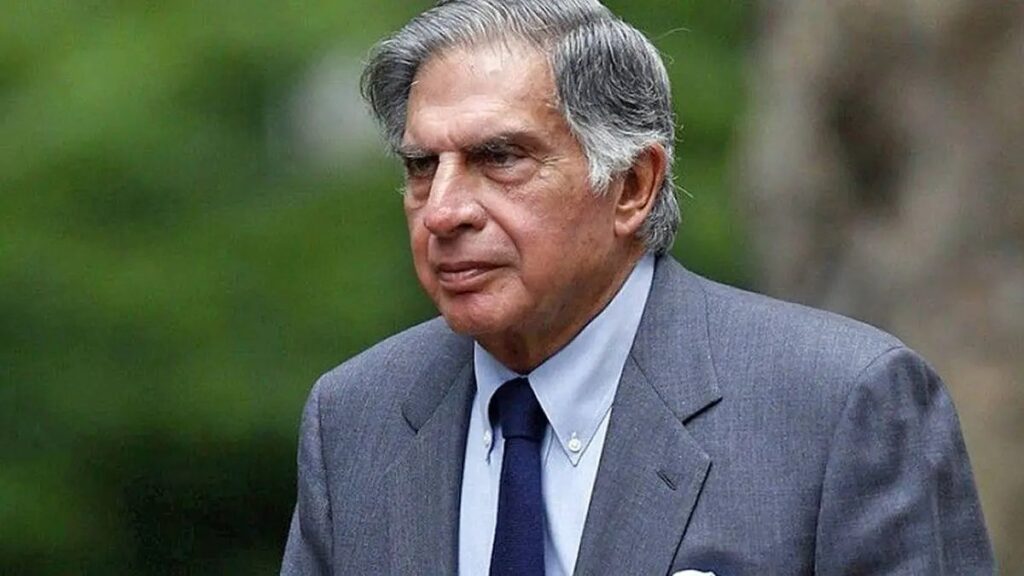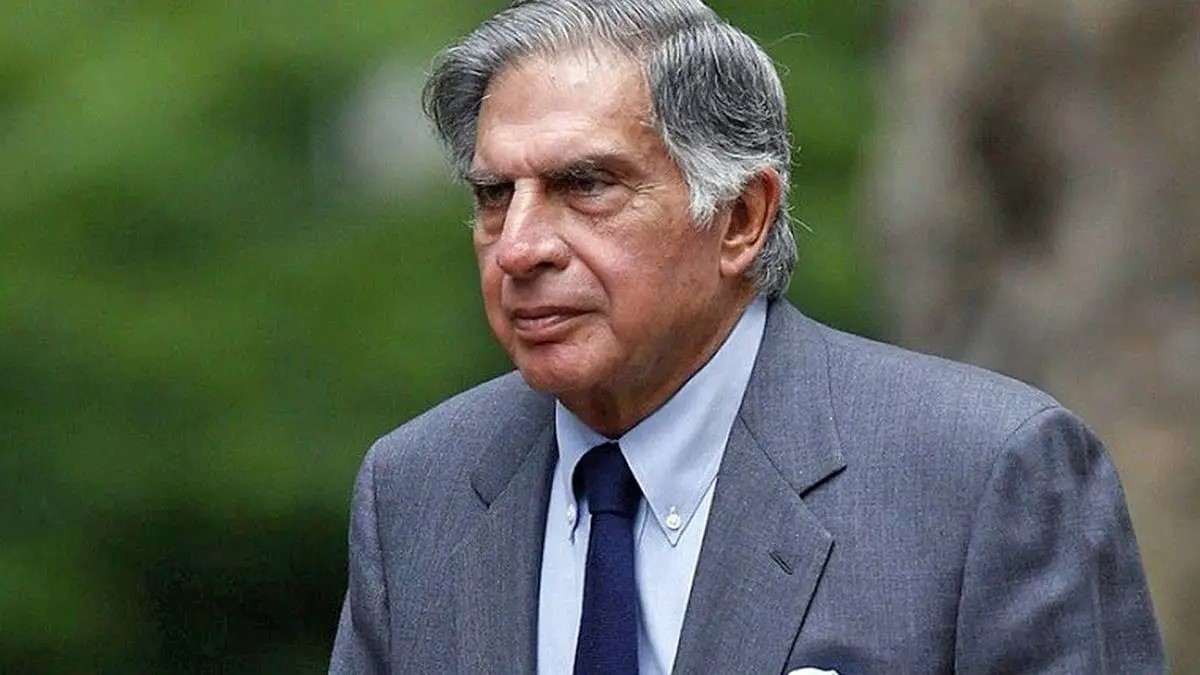
Ratan Tata, a name synonymous with Indian entrepreneurship, philanthropy, and visionary leadership, has left an indelible mark on both the national and global business landscapes. As the former chairman of Tata Sons and the Tata Group, his journey from a young engineer to a respected industrialist is not just inspiring but also a testament to the power of perseverance, innovation, and ethical leadership. This blog delves into the life, achievements, and enduring legacy of Ratan Tata, highlighting why he remains a pivotal figure in India’s growth story.
Early Life and Education
Born on December 28, 1937, in Bombay (now Mumbai), Ratan Naval Tata was the scion of the Tata family, one of India’s most prominent business dynasties. His father, Naval Tata, was adopted by Sir Sorabji Tata, the founder of the Tata Group, after marrying his mother, Sooni Tata. Growing up in an environment that emphasized values, education, and service, Ratan was instilled with a strong sense of responsibility and ambition.
Ratan Tata pursued his undergraduate studies in architecture at Cornell University, USA. Post his bachelor’s degree, he enrolled for an advanced management program at the Harvard Business School, although he did not complete it. This international exposure equipped him with a global perspective, which would later influence his approach to business and innovation.
Ascension to Leadership
Ratan Tata joined the Tata Group in 1962, initially working on the shop floor of Tata Steel in Jamshedpur. This hands-on experience provided him with a deep understanding of the operational aspects of the conglomerate. Over the years, he held various positions within the group, contributing to its growth and diversification.
In 1991, amidst a period of economic liberalization in India, Ratan Tata was appointed as the chairman of Tata Sons, the holding company of the Tata Group. His leadership coincided with a transformative phase for India’s economy, characterized by deregulation and increased global integration. Ratan seized this opportunity to steer the Tata Group towards global expansion, innovation, and modernization.
Transformational Achievements
Global Expansion and Acquisitions
Under Ratan Tata’s stewardship, the Tata Group embarked on an aggressive global expansion strategy. His bold vision led to several high-profile acquisitions that not only enhanced the group’s international footprint but also diversified its portfolio.
- Jaguar Land Rover (JLR): In 2008, Tata Motors acquired the iconic British car brands Jaguar and Land Rover from Ford for $2.3 billion. This move revitalized both brands and positioned Tata Motors as a significant player in the global automotive industry.
- Corus: In 2007, Tata Steel’s acquisition of Corus, Europe’s second-largest steel producer at the time, marked a significant milestone in the group’s global expansion. This deal enhanced Tata Steel’s technological capabilities and market presence.
- Tetley: Tata Tea’s purchase of Tetley in 2000 for £426 million made it the largest foreign takeover of a British company at that time, solidifying Tata’s presence in the global beverage market.
Innovation and Sustainability
Ratan Tata has always been a proponent of innovation and sustainability. Under his leadership, the Tata Group launched several pioneering initiatives:
- Tata Nano: Launched in 2008, the Tata Nano was billed as the world’s cheapest car, aimed at making car ownership accessible to the masses in India. Although it faced challenges, the project showcased Tata’s commitment to affordability and innovation.
- Tata Swach: Recognizing the need for clean drinking water in India, Tata Swach was introduced as an affordable water purifier, blending technology with social responsibility.
- Sustainability Practices: The Tata Group has consistently emphasized sustainable practices across its businesses. From renewable energy projects to eco-friendly manufacturing processes, sustainability remains at the core of Tata’s operations.
Technological Advancements
Ratan Tata foresaw the critical role of technology in business growth. Under his leadership, the group invested heavily in research and development, fostering a culture of innovation. Tata Consultancy Services (TCS) emerged as a global IT powerhouse, while Tata Motors ventured into electric vehicles and autonomous driving technologies, setting the stage for future advancements.
Philanthropy and Social Responsibility
Beyond business, Ratan Tata is renowned for his philanthropic endeavors. The Tata Group has a long-standing tradition of giving back to society, and Ratan has been a driving force behind many of its charitable initiatives.
- Tata Trusts: Representing over 66% of the Tata Group’s equity, Tata Trusts fund a wide array of social, educational, and healthcare projects across India. Under Ratan’s leadership, the trusts have expanded their impact, addressing issues like rural development, education, and public health.
- Education and Research: Ratan Tata has been instrumental in establishing institutions like the Tata Institute of Fundamental Research (TIFR) and the Indian Institute of Science (IISc), fostering research and education in science and technology.
- Healthcare Initiatives: The Tata Group has funded numerous hospitals, research centers, and healthcare programs, significantly contributing to India’s healthcare infrastructure.
Leadership Philosophy
Ratan Tata’s leadership is characterized by a blend of humility, integrity, and forward-thinking. He believes in empowering employees, fostering innovation, and maintaining high ethical standards. His approach emphasizes long-term value creation over short-term profits, ensuring sustainable growth for the conglomerate.
Emphasis on Corporate Governance
Under Ratan Tata, the Tata Group set benchmarks for corporate governance in India. Transparent decision-making, accountability, and ethical business practices became the hallmarks of the group’s operations, earning it trust and respect globally.
Mentorship and Succession Planning
Ratan Tata has been a mentor to many young leaders within the Tata Group, nurturing talent and encouraging a culture of continuous learning. His focus on succession planning ensured a smooth transition of leadership, preserving the group’s legacy while embracing new ideas and innovations.
Challenges and Resilience
Like any major conglomerate, the Tata Group faced its share of challenges during Ratan Tata’s tenure. The global financial crisis of 2008 tested the resilience of the group, but strategic acquisitions and prudent management helped navigate through turbulent times. The Tata Nano project, despite its noble intentions, encountered production and marketing challenges, highlighting the complexities of disruptive innovation.
Ratan Tata’s ability to learn from setbacks and adapt to changing circumstances underscores his resilience as a leader. His unwavering commitment to the group’s values and vision enabled the Tata Group to emerge stronger from adversities.
Legacy and Continuing Influence
Ratan Tata stepped down as the chairman of Tata Sons in 2012, passing the baton to Cyrus Mistry, and later to Natarajan Chandrasekaran in 2017. However, his influence continues to resonate within the group and beyond.
Inspiring Future Generations
Ratan Tata remains an inspiration for aspiring entrepreneurs and business leaders. His journey exemplifies how visionary leadership, coupled with ethical practices, can drive meaningful change and foster sustainable growth.
Global Recognition
His contributions have been recognized globally, earning him numerous awards and honors, including the Padma Bhushan (2000) and Padma Vibhushan (2008), two of India’s highest civilian awards. Internationally, he has been lauded for his role in promoting Indian businesses on the world stage.
Ongoing Ventures
Even after retiring from active management, Ratan Tata continues to engage in various ventures. He is involved in philanthropic projects, mentoring startups, and contributing to discussions on business and societal development. His insights and experiences remain invaluable to the business community.
Conclusion
Ratan Tata’s life and career are a testament to the profound impact that one individual can have on an entire industry and society. His leadership transformed the Tata Group into a global powerhouse, driven by innovation, sustainability, and ethical practices. Beyond business achievements, his commitment to philanthropy and social responsibility has improved countless lives, reinforcing the Tata legacy of trust and service.
As India continues to rise on the global economic stage, Ratan Tata’s contributions serve as a guiding light, inspiring current and future generations to pursue excellence, embrace innovation, and uphold the highest standards of integrity. His story is not just about business success but also about the enduring power of vision, values, and resilience.
